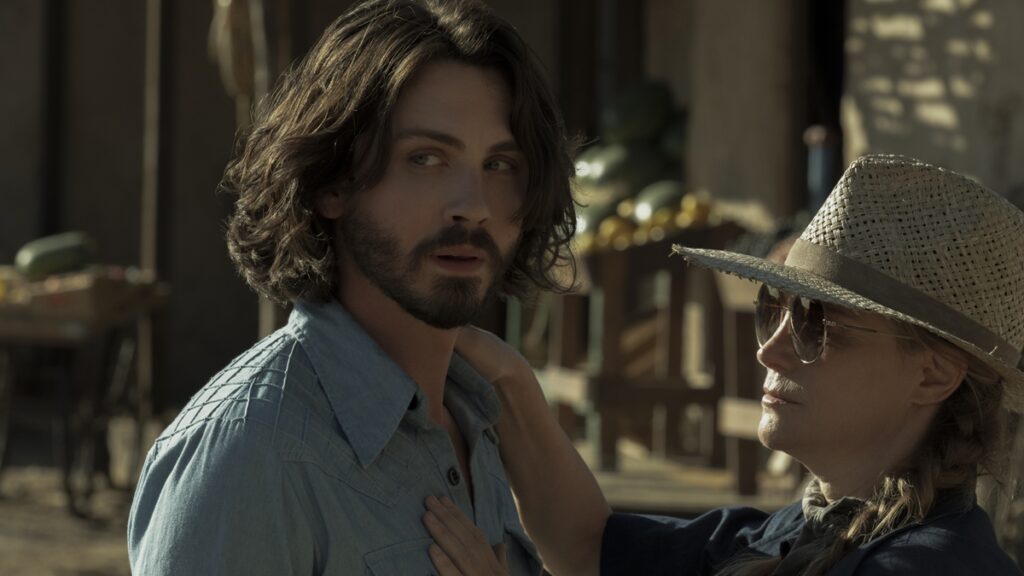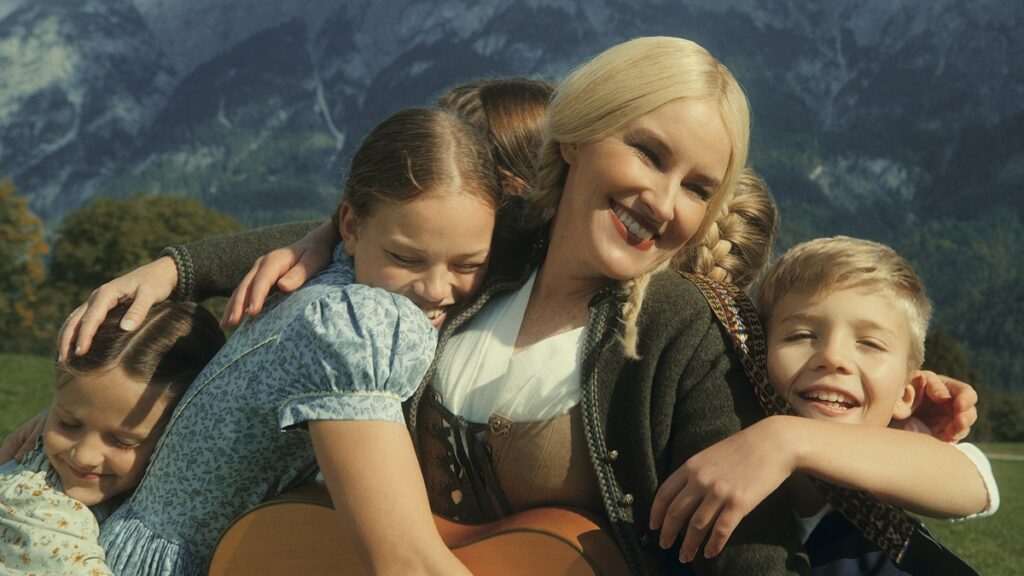Read also:
How to Watch FX Live Without CableHow To Watch AMC Without CableHow to Watch ABC Without CableHow to Watch Paramount Network Without CableThe Prime Video series returns as messy as ever for its second and final season.
In Season 2, Hunters remains dedicated to exploring whether vengeance and justice can ever be one and the same.
Sort of.
There’s something admirably muddled about the show’s philosophies and politics. On several occasions throughout the eight-episode season, Hunters would seemingly reach a conclusion to its internal beliefs. Then, sometimes only moments later, it would backtrack and offer a competing theory of the case. Fans of art with consistent principles will likely find this back-and-forth somewhere between tedious and absolutely maddening.
It’s 1979 now. The Hunters are no more. Joe (Louis Ozawa) was abducted and brought to an Argentinian compound where the still very much alive Eva Braun (Lena Olin) and Adolf Hitler (Udo Kier) have lived in seclusion for decades. Jonah (Logan Lerman) couldn’t square his lived experience of Meyer’s (Al Pacino) mentorship with the truth about the man’s identity and what that forced Jonah to do. If that wasn’t enough to shatter the team, a disastrous mission in Spain certainly seems to have finished the job.

One of the series’ theses, though, is that once you get a taste for the (Nazi) hunt, you can’t let it go. Despite living under another name and preparing to get married, Jonah seemingly hasn’t even tried. He continues to stalk Biff Simpson (Dylan Baker) until the former Undersecretary/secret Nazi gives up what we learned last season: Hitler lives. Jonah, of course, can’t let that stand. He gets to working on putting the band back together. Meanwhile, the mysterious Chava (Jennifer Jason Leigh) is getting a killing path across Europe with an agenda of her own.
A major complaint of season 1 was that Hunters never developed its characters. Viewers didn’t know them very well when they first showed up. Then, as the season unfolded, the characters gained little depth or shape. Things happened to them. They reacted in the moment. In the end, though, they never became three-dimensional.
This season suffers similarly. Leigh is a significant exception. Even before the show reveals her true intentions and her complete origin, Leigh makes Chava feel alive. Even better, she imbues the character with unnerving charisma. Every time she’s on-screen Hunters gets a jolt of energy.
Ultimately, Hunters is better as a kind of discussion prompt than it is as a work capable of answering the questions it raises.
Faring not as well is Pacino’s Meyer. Despite being dead, he takes up a significant patch of the series’ real estate in flashbacks. While they do better define the former Nazi turned Jewish Nazi hunter, they never feel vital to the season. Worse, though, is where the flashbacks lead. They reveal something that makes Jonah’s difficult choice at the end of the last season feel far less complicated. It’s a weird bit of retroactive punch pulling from a show that otherwise seemed fairly honest in its wrestling with the cost of hunting evil.
That vacillation, which feels either ambiguous or wishy-washy depending on one’s perspective, largely defines this season. It’s nearly impossible to dive into without spoilers but sufficed to say the “actually, it’s all ok” note that wraps up Jonah’s complex feelings about Meyer gets applied to multiple characters in the final two episodes. The problem isn’t that the show doesn’t have the right to end on a positive note. It’s just that some of the final character beats read so out of step with the show’s overall tone as to feel gauzy. Why spend the majority of two seasons making even the act of Nazi hunting seem morally fraught only to offer such tidy answers as the clock winds down?
The attempts to relate the challenges of this alternate history to our times are similarly underwhelming. The invocation of the Deep State screams, “like today!” at the viewers, certainly. However, Hunters fails to offer much more than that kind of namechecking. Here it isn’t even that the connections made are tidy or simplistic. They’re more…incomplete. Yes, a villain is holding up the Deep State as a punching bag to rally people to their side. What’s the rest of that thought, though? Surely, it can’t just be, “this character sure is a lot like Donald Trump, huh?”
Still, this season does have a certain propulsive quality. Leigh, as already noted, is an excellent addition to the cast. Josh Radnor, back as sleazy actor turned Nazi hunter Lonny Flash, finds the humor and the pathos in his character’s slide back into self-delusion and hedonism. Kate Mulvany is once again a treat as the acid-tongued Sister Harriet. Truth be told, despite the slimness of their characters, everyone acquits themselves fairly well.

Kier’s Hitler is neither mystical monster nor ridiculous fool a la Jo Jo Rabbit. Thankfully, the show doesn’t attempt to conjure a moment of sympathy for him, but they also never rely on reductive or cartoonish clichés. He can be scary, arrogant, delusional, desperate, and pathetic by turns. By neither elevating him to a figure of primal evil nor reducing him to a laughingstock, Kier gives Hunters its best challenge to the team’s mission. Of course, they should hunt him. He’s goddamn Hitler! And yet, is he worth the effort or the risk? Does chasing him down provide the world something better than just letting him waste away in largely powerless isolation, thought dead by nearly everyone?
Ultimately, Hunters is better as a kind of discussion prompt than it is as a work capable of answering the questions it raises. But those questions are intriguing enough, and set against enough well-done action set pieces, that many will likely find value in watching it.
Hunters Season 2 continues to tell the stories January 13 on Prime Video.